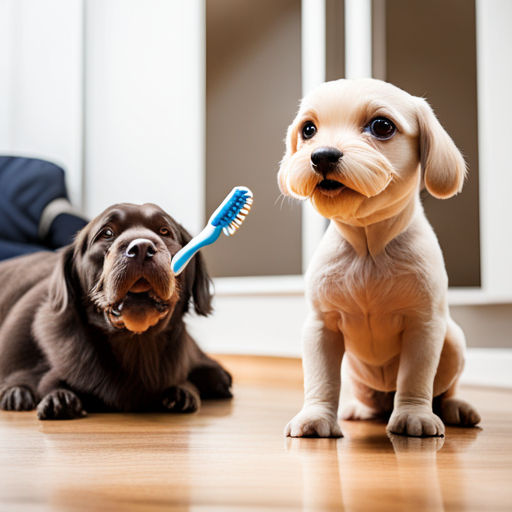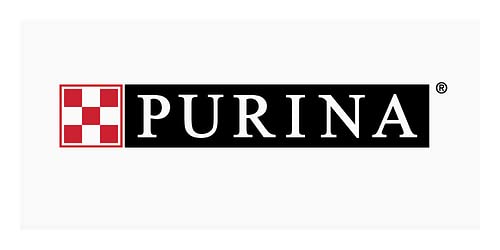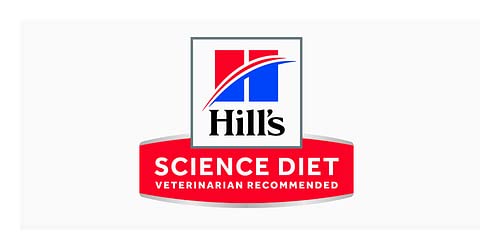Maintaining your dog’s health is an important part of being a responsible pet owner, and having the right supplies on hand can make it easier to keep your furry friend happy and healthy. Some essential dog health supplies include flea and tick preventatives, heartworm medication, grooming tools, dental care products, and first-aid supplies. By having these items readily available, you can help ensure that your dog stays healthy and comfortable throughout their life.
Best Dog Health
No products found.
Healthy Dog Treats
No products found.
Dog Health
No products found.
Pet’s Health
No products found.
No products found.
Dog Health brands
Healthy Dog
A healthy dog is a happy dog. Taking care of your furry companion’s overall well-being is essential for their longevity and quality of life. Here are some key aspects to consider when it comes to maintaining a healthy dog:
- Balanced Diet: Providing a balanced and nutritious diet is the foundation of your dog’s health. Feed them high-quality dog food that contains essential nutrients for their optimal growth and development.
- Regular Exercise: Exercise is crucial for keeping your dog physically fit and mentally stimulated. Engage them in daily activities such as walks, playtime, or interactive games that match their energy level and breed characteristics. Regular exercise helps maintain a healthy weight, strengthens muscles and joints, and promotes cardiovascular health.
- Veterinary Care: Regular veterinary check-ups are essential for preventive care and early detection of any health issues. Schedule routine visits with your veterinarian for vaccinations, dental care, parasite prevention, and overall health assessments. Follow their recommendations for vaccinations, deworming, and flea/tick control.
- Dental Health: Good oral hygiene is vital for your dog’s overall health. Brush their teeth regularly using a dog-specific toothbrush and toothpaste recommended by your veterinarian. Dental chew toys or treats designed to promote dental health can also be beneficial in reducing plaque and tartar buildup.
- Mental Stimulation: Mental stimulation is as important as physical exercise for your dog’s well-being. Provide them with interactive toys, puzzle games, or training sessions to keep their minds active and engaged. This helps prevent boredom, destructive behavior, and promotes a positive mental state.
- Socialization: Socialize your dog from a young age to ensure they are comfortable and well-behaved around other animals, people, and different environments. Encourage positive interactions with other dogs, introduce them to new experiences gradually, and provide opportunities for socialization to promote their emotional well-being.
- Grooming: Regular grooming sessions help maintain a clean and healthy coat for your dog. Brush their fur to remove loose hair, debris, and prevent matting. Bathe them as needed using dog-specific shampoos that are gentle on their skin. Trim their nails, clean their ears, and check for any signs of skin issues or parasites.
Remember, each dog is unique, and their health requirements may vary. Pay attention to their individual needs and consult with your veterinarian for personalized advice. By prioritizing their nutrition, exercise, preventive care, and overall well-being, you can ensure your dog lives a happy and healthy life by your side.
Healthiest dog breeds
While all dogs are individuals and can have varying health concerns, there are certain dog breeds that are known for their overall good health and longevity. Some of the healthiest dog breeds include Australian Cattle Dog, Australian Shepherd, Border Collie, Chihuahua, English Springer Spaniel, German Shorthaired Pointer, Jack Russell Terrier, Labrador Retriever, Shetland Sheepdog and Siberian Husky.
It’s important to note that even within these breeds, there can be variations in individual health and genetic predispositions to certain conditions. Regular veterinary check-ups, a balanced diet, exercise, and proper care are important for maintaining any dog’s health.
Dog Health Supplies Frequently Asked Questions
What do dogs need for their health?
By providing your dog with proper nutrition, regular exercise, routine veterinary care, mental stimulation, and adequate rest, you can help ensure that they maintain good health and live a happy life.
What makes dogs live longer?
There are several factors that can contribute to a dog’s longevity:
1- Diet: Feeding your dog a well-balanced and nutritious diet can help keep them healthy and extend their lifespan. Make sure to choose high-quality food that is appropriate for your dog’s age, breed, and activity level.
2- Exercise: Regular exercise can help maintain your dog’s physical and mental health, reduce the risk of obesity and other health issues, and improve their overall quality of life.
3- Preventive care: Regular check-ups with a veterinarian, vaccinations, parasite prevention, and dental care can help prevent or catch health issues early, leading to better outcomes and a longer life.
4- Healthy lifestyle: Avoiding smoking around your dog, minimizing exposure to toxins and pollutants, and providing a safe and comfortable environment can all contribute to your dog’s health and longevity.
5- Genetics: Some breeds may be more prone to certain health issues, so choosing a breed with a longer average lifespan and good overall health can increase the chances of a longer life.
What medical things do dogs need?
Dogs, like humans, require certain medical care to ensure their health and well-being. Here are some essential medical aspects to consider for your dog:
1- Vaccinations: Vaccinations are crucial for preventing various infectious diseases in dogs. Regular vaccination schedules, as recommended by your veterinarian, help protect your dog from common illnesses such as rabies, distemper, parvovirus, and canine hepatitis.
2- Parasite Control: Parasite prevention is essential to keep your dog safe from external and internal parasites. This includes regular treatments for fleas, ticks, and worms. Your veterinarian can recommend appropriate preventive medications and advise on the most effective schedule for your dog.
3- Spaying/Neutering: Spaying (for females) and neutering (for males) are important procedures that help control the pet population and provide certain health benefits for your dog. Spaying can prevent uterine infections and reduce the risk of certain cancers, while neutering can decrease the risk of testicular cancer and certain behavioral issues.
4- Dental Care: Dental health is often overlooked but is crucial for your dog’s overall well-being. Regular dental care, including professional cleanings by a veterinarian and home dental care, helps prevent dental disease, gum infections, and other oral issues that can impact your dog’s overall health.
5- Regular Check-ups: Routine veterinary check-ups are essential for preventive care and early detection of any health problems. During these visits, your veterinarian can perform a thorough examination, address any concerns, and provide advice on diet, exercise, and specific health needs based on your dog’s age, breed, and medical history.
6- Emergency Care: Accidents and sudden illnesses can happen, so it’s important to be prepared for emergency situations. Familiarize yourself with emergency veterinary clinics in your area, have a pet first aid kit on hand, and know the common signs of distress or illness in dogs.
7- Medications and Treatments: Dogs may require medications or treatments for various conditions such as allergies, arthritis, skin issues, or chronic diseases. Always follow your veterinarian’s instructions regarding dosage, frequency, and administration of any prescribed medications.
Remember, proper medical care for your dog should be tailored to their individual needs. Regular communication and consultation with your veterinarian are crucial in ensuring your dog receives the necessary medical attention and stays healthy throughout their life.
What are pet care supplies?
Pet care supplies refer to a range of products and items that help ensure the well-being, health, and comfort of pets. These supplies encompass various categories and may include:
1- Food and Treats: High-quality pet food that meets the nutritional requirements of different animals, including dogs, cats, birds, or small animals. Treats are often used for training, reward, or as occasional indulgences.
2- Grooming Supplies: Products for maintaining the hygiene and appearance of pets, such as brushes, combs, shampoos, conditioners, nail clippers, ear cleaners, and dental care items.
3- Bedding and Housing: Comfortable beds, blankets, crates, cages, litter boxes, or aquariums suitable for specific pets to provide them with a safe and cozy resting place.
4- Toys and Enrichment: Playthings designed to entertain and stimulate pets, promoting physical activity, mental engagement, and alleviating boredom. Toys may vary depending on the type of pet, including chew toys, puzzle toys, balls, or interactive toys.
5- Collars, Leashes, and Harnesses: Essential for controlling and restraining pets during walks, training, or outdoor activities. These items ensure the safety of pets and their owners.
6- Health and Wellness Products: Supplements, vitamins, and medications recommended for pets’ overall health, including joint support, flea and tick control, dental care, or specific health conditions.
7- Litter and Waste Management: Products for managing pet waste, including litter boxes, litter, waste bags, or cleaning supplies for maintaining cleanliness and odor control.
8- Travel and Transportation: Supplies that facilitate safe and comfortable travel with pets, such as carriers, travel crates, car seat belts, or travel accessories.
9- Training and Behavior: Training aids, tools, and products designed to assist in teaching pets basic commands, behavior modification, or addressing specific behavioral issues.
10- Safety and Identification: Pet tags, microchips, collars with ID, reflective gear, or GPS tracking devices to ensure pets’ safety and help identify them if they become lost.
These are just some examples of pet care supplies available in the market. The specific supplies needed may vary depending on the type of pet, their age, size, and individual requirements. It is important to choose high-quality products that are suitable for your pet’s needs and consult with a veterinarian for personalized recommendations




